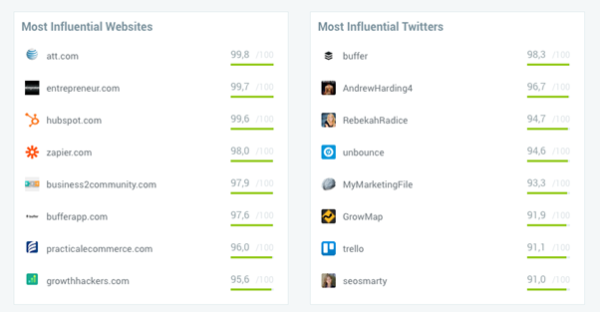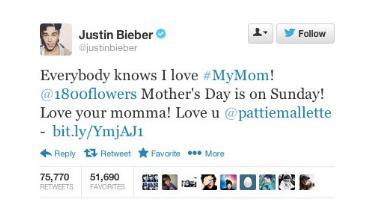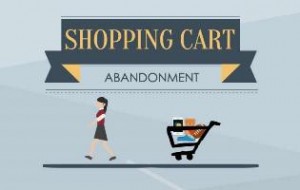— July 21, 2017

rawpixel / Pixabay
Word-of-mouth is one of the most valuable types of marketing for your startup business. In fact, it has been shown to influence anywhere up to 50% of all purchase decisions.
Think of it this way – if you’ve never heard of a brand before, it will feel somewhat risky buying from them. Alternatively, if one of your friends comes to you and says “Jack, I bought this incredible thing from <Brand> the other day, you should absolutely check them out.” Then, you’ll feel much more comfortable making a purchase.
Word of mouth is based on the concept of social pressure. It makes us feel like we’re missing out because we’re not enjoying the great experience other people are. This is why influencer marketing is so powerful. It allows other people your audience trusts to recommend your products, removing bias and compelling people to buy.
Research from Twitter shows that nearly half of all customers use guidance from their social media influencers to help them make buying choices.
That’s great but what about if you don’t know anyone to give you the social boost you need? When you’re a startup or an emerging company, you’re still essentially a “nobody”. So, how can you convince those big names on social media to give you a shout out – when they probably have no idea who you are?
Well, the good news is that everyone needs to start somewhere on the road to becoming a successful entrepreneur. Even if you’re only a tiny brand, you can still get the benefits of social influencers for your company with a little hard work.
So, let’s begin.
Step 1: Finding What You Need
An influencer is someone that can convince other people to do something. A parent may be an influencer over their child, because that child perceives what the parent says to be important, or valuable. A social media influencer is someone who wields the power of influence through channels like Instagram, Facebook, or Twitter.
The first time you saw influencer marketing was probably on television – when one of your favorite actors told you that you should be eating cholesterol-lowering vegetable oil, or something similar. Today, the influencers that have the biggest impact on your audience don’t necessarily need to have traditional celebrity status – they just need to be authorities in your niche.
There are plenty of tools out there that can help you to identify influencers in your chosen market. But it’s important to be aware of exactly what you’re looking for if you want to get the best results. Reach alone doesn’t necessarily equal a powerful influencer, you also need to consider things like relevance and resonance too. For instance, look for engaged followers, likes and shares, and comments from the segments of the social network you’re trying to reach.

Step 2: Reaching Out
Influencers are very busy. If you want to make the right impression, don’t waste their time.
Keep your pitch as simple as possible and get to the point with an opening sentence that catches your reader’s eye. Just like writing a blog post, the headline of your pitch will determine whether your influencer decides to continue reading or not.
During your pitch, address:
Relevance: The influencer needs to know that the company they will be supporting is relevant to their current cause or background.
Value: What can you offer to the influencer in terms of value? In the world of marketing, you can never get something for nothing.
Resonance: The level of engagement that you can give to the audience, or the future growth opportunities you can offer
Step 3: Ways to Connect
Once you know how to pitch an influencer, you need to know how to get in touch with them. Social media can be one of the simplest and most effective way to interact with influencers online, because platforms like Twitter and LinkedIn have already established themselves as solutions for connecting like-minded people.
One useful feature of twitter is the “verified” status, which lets others know that their influencer has a very real following. Once you’ve found your chosen influencer, you can try to tweet them for a chance to connect, quote them, then let them know they’ve been included in an article, or offer to interview the person.
When you’re connecting with influencers online it’s important to do more than just say “hi”. You need to go a step further, be engaged and engaging, and find ways to make yourself stand out. If possible, it may be useful to try and connect through someone you mutually know, as this sets a background of trust.
Step 3: Setting Goals
When you start working with influencers, or at least start convincing them to work with you, you need to give them an idea of what to expect. The beginning of this process comes from setting goals and expectations of what you hope to achieve with your influencer marketing efforts. If you have a plan in mind and you can thoroughly explain the steps that you would like your influencer to take on your behalf, they’ll be much more willing to consider your proposal.
Inform your influencer of what their role will be in your plan for success. Are they going to share content on your behalf – create content, or both? For most businesses, the aim will be to get as much content as possible to share with happy customers who are eager to learn more about their startup.
Step 4: Showing your Value
Last, but certainly not least – if you want an influencer on your side as a startup, give them an incentive to work with you.
Sometimes your plans for doing something incredible with your business won’t be enough to inspire an influencer to act on your behalf, and depending on the influencer you might have to compensate them financially for their efforts.
Remember, if someone is going to shower the internet with good comments about your brand, make sure they feel comfortable about what they’re doing. Demonstrate how partnering with your brand is going to be beneficial to the influencer (rather than just you), and their audience! Influencers are protective of their audience members, and will usually only connect with brands that offer distinct value.
Not sure how you can show your value? Here are some examples of adequate compensation for an influencer marketing campaign:
Money: Money speaks to almost anyone, but proceed with caution. Not only will you have a limited budget, but you could also run the risk of paying for a testimonial that sounds insincere.
Shout outs: Many startups use shoutouts in their Instagram marketing campaigns. The reason is If you’re willing to do the hard work of promotion on the behalf of your influencer, they may be more inclined to help you out. Give them shout outs that draw attention to their value in your future blog posts, email campaigns, and press releases! Sometimes saying “Thanks for the comment you amazing influencer, you” will be enough to work wonders.
Giveaways and product discounts: If your product is particularly valuable to your influencer, you might be able to offer a big discount in exchange for a review. Most of the time, however, bigger influencers will expect you to give them free samples and money without any strings.
Commission: Finally, influencers who are actively inserting themselves into conversations about your brand might appreciate getting some kind of commission for the boost in sales that come from their interaction. This is a great way to give financial support to your influencer, without breaking the bank.

Influencer Marketing Can Work for Anyone
The truth is that influencer marketing can work for anyone – no matter how large or small your new startup might be. However, keep in mind that you should be able to track the engagement that comes from your influencer efforts over time.
Sometimes, measuring results can be difficult, as 47% of respondents to a Group high survey commented that proving the value of their influencer marketing is a tough job. However, many tools will allow you to measure campaign success by tracking mentions or hashtags.
While reaching out to big-name influencers can seem daunting as a “nobody”, remember that every successful name you see in business today started off as an unknown startup.
Business & Finance Articles on Business 2 Community
(108)
Report Post



